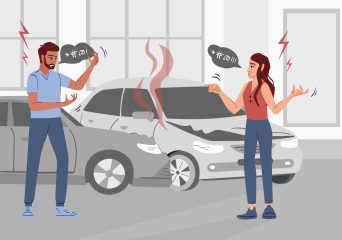
Table Of Contents
Why Trucking Companies are Often Liable for Accidents
Fort Lauderdale, with its bustling ports, thriving commerce, and heavy traffic along I-95 and I-595, sees a constant flow of commercial trucks sharing the roads with everyday drivers. While these vehicles keep goods moving across South Florida, they also bring significant risks when accidents occur.
Unlike standard car crashes, truck accidents often point back to broader issues within the trucking companies themselves—ranging from poor maintenance to unrealistic deadlines for drivers.
When companies cut corners or ignore regulations, the consequences can be devastating, leaving victims to deal with severe injuries, financial burdens, and overwhelming legal complexities.
Understanding how liability extends beyond the driver to the company is key in pursuing justice. With the guidance of a Fort Lauderdale truck accident lawyer, victims can uncover hidden causes, hold companies accountable, and fight for fair compensation. This article explores why trucking companies are often liable and how their actions directly impact public safety.
Responsibility for Vehicle Maintenance
Trucking companies are responsible for keeping their vehicles up and running. The failure of the mechanical system of the truck also causes accidents. If the company neglects this responsibility, it could potentially face liability in the event of a failure resulting in an accident. Taking care of brakes, tires, and engines is not what you do as part of your weekly routine—it is what you do to stay safe.
Hiring Practices and Training
This means that road safety depends on the recruitment and training of drivers. Most companies have to employ qualified staff and provide them with sufficient training to ensure they can easily manage big vehicles.
A natural disaster can occur due to defective products or be caused by damages that could lead to accidents, such as poor hiring practices or poorly trained hired personnel, resulting in injuries, thus making the company liable. We closely examine a driver’s history, skills, and knowledge of safety rules before they hit the road.
Pressure and Deadlines
Trucking companies put a lot of pressure on their drivers to meet specific deadlines. Such pressure can result in fatigue, speeding, or other risky practices. If the company’s culture prioritizes deadlines rather than safety, it might hold partial responsibility for accidents that occurred as a result of driving while rushed or exhausted. One key to reducing risk is ensuring that drivers rest enough and have realistic schedules.
Cargo Loading and Securement
Loading and securing cargo is an important way to ensure safe transportation. When the driver loses control of a load that is not properly secured, it shifts. Companies are responsible for ensuring loads are stable and strapped correctly. If accidents occur because of a failure in this area, the company can be held liable.
Compliance With Regulations
As a transport method, trucking companies must follow federal and state regulations aimed at fostering safety. These regulations concern vehicle maintenance, driver working hours, cargo amounts, staying within the law, and so forth.
Failure to comply can lead to harsh fines and additional liability in the event of an accident. These rules are not merely legal requirements to avoid fines; they are essential moral duties aimed at preserving the sanctity of life in our world.
Supervision and Monitoring
Supervision and monitoring of drivers are continuous in nature, ensuring that the required safety standards are maintained. Many companies now use technology that regularly monitors the driver’s behavior, speed, and route.
Such oversight allows companies to correct unsafe practices before they result in accidents. In some cases, if a company does not supervise its drivers sufficiently, it could be liable for the accidents that result.
Insurance and Financial Responsibility
Trucking companies must purchase a lot of insurance to manage claims after accidents. This indicates the potential financial responsibility they have. While insurance covers damages, medical bills, and associated costs, it emphasizes the importance of following safety standards to avoid accidents in the first place.
Public Safety and Reputation
Trucking companies should prioritize public safety. Accidents not only harm those who are directly involved but also can damage the reputation of the company. When customers see a responsible, safety-friendly organization, it creates a bond where customers feel as though they can trust you and your organization to be safe. When a fleet is safer, we all benefit by having fewer accidents.
Conclusion
Companies involved in trucking bear a grave responsibility for safe roads. They handle everything from keeping trucks serviced to getting drivers trained and using the right vehicles, playing a vital role in accident prevention.
Neglecting all these responsibilities can lead to severe legal and financial consequences. When trucking businesses put safety first and comply with regulations, the risk of highway accidents and their associated liabilities is significantly reduced, benefiting everyone who uses the roads.









